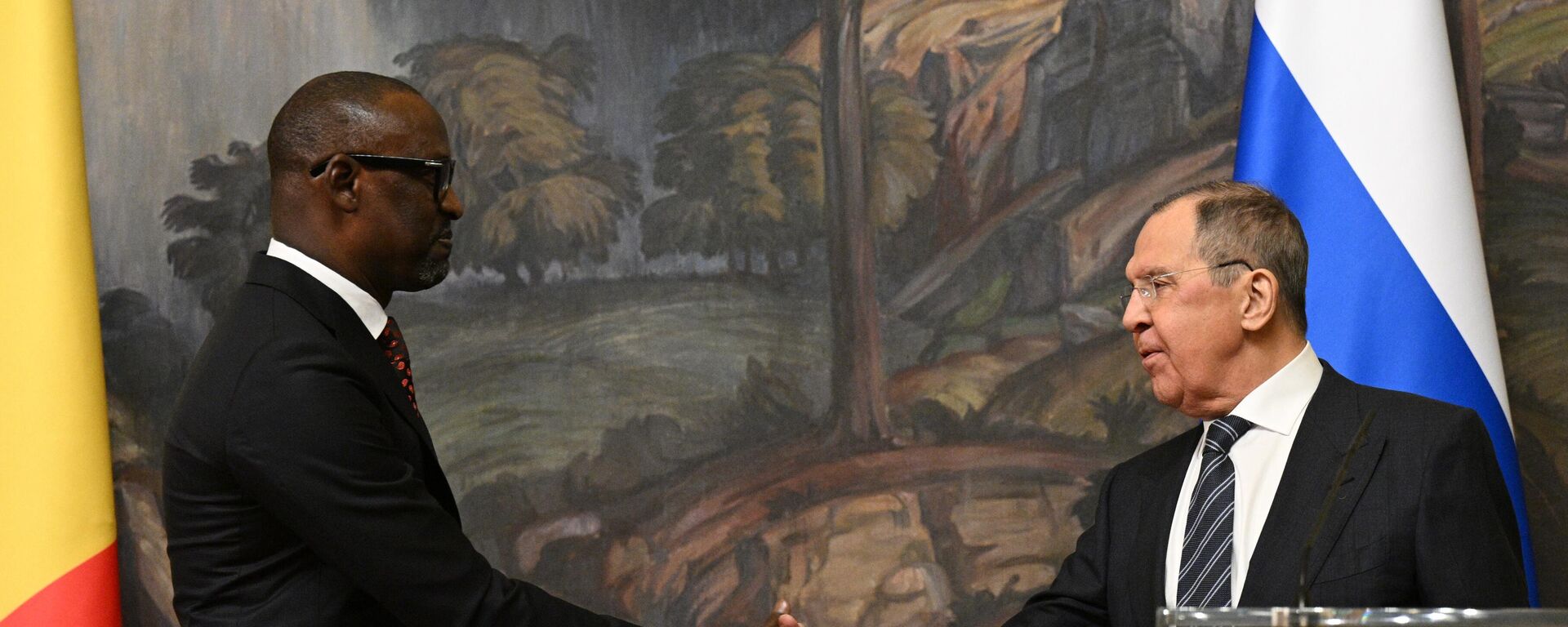More & More Young Malians Prefer to Come to Russia to Study in Universities, Malian Minister Says

© Sputnik
Subscribe
Exclusive
Recently, Russian President Vladimir Putin announced that Russia will maintain its collaboration with African nations in the education sector, and intends to raise the number of African students studying at Russian universities.
More and more young Malians and Africans are opting to come to Russia to study at universities, Malian Minister of Higher Education and Scientific Research Bourema Kansaye told Sputnik Africa.
"In recent years, African countries have undergone very important changes that are profound and irreversible. Therefore, it is quite natural that these countries can have much more partnerships, and this diversification towards Russia, I think, is a necessity," Kansaye added.
The minister also emphasized the quality of the Russian higher education.
"Cooperation with Russia in the field of higher education and scientific research will certainly lead to the diversification of partnerships, which will allow us to develop our economy," he said.
According to the Russian humanitarian cooperation agency Rossotrudnichestvo, around 30,000 people from African countries come to Russia every year to study at universities.
Russian-Malian relations in the field of scientific research and innovation are developing with the exchange of delegations, the establishment of Russian language centers, and the organization of scientific works between higher education institutions of the two countries, the minister underlined.
The senior official also noted that partnership with Russia can boost Mali's economy and contribute to its energy sovereignty, adding that this requires the transfer of skills and technologies.
In the energy sector, according to him, Bamako can count on the "proven experience" of its partner.
"Russia can contribute to the construction of power plants, hydroelectric power plants, nuclear power plants for civilian purposes, as well as to the construction of energy and renewable energy sources using solar and wind power," Kansaye noted.
Russia's state nuclear corporation Rosatom is actively strengthening partnership with African countries in the energy sector, including Mali, with which an agreement on cooperation in the field of nuclear energy for peaceful purposes was signed.
The minister went on to say that the countries that cooperate well with Russia, including Mali, "unanimously recognize the sincerity" of these exchanges.
"In fact, the most important thing that always speaks in favor of the country is the facts. No matter how malicious [somebody's] intentions may be, when the facts speak for themselves, lies and propaganda fade into the background. Thus, all countries that have had positive contacts with Russia unanimously recognize the sincerity of Russian cooperation. This is the case with Mali," he underlined.
He recommended that the thousands of Africans educated in Soviet and Russian universities become "intermediaries in communication with the Russian side."
"They can be concrete examples not only of the quality of cooperation, but also of the quality of education that Russian higher education institutions can provide," Kansaye explained.
According to him, "real cooperation and real diversification of cooperation are only possible when a country is fully sovereign." Therefore, the African country adheres to three principles in its relations, the senior official explained.
"The first principle is respect for Mali's sovereignty. Any country that respects our sovereignty is a partner and a friend. The second principle is respect for Mali's strategic choices and its choice of partnerships. Any country that can respect that can be our friend. And thirdly, in all our decisions, we must take into account the interests of our people. So these are the three principles that are enshrined in Article 34 of our new constitution. This is certainly not liked by some who are used to pulling the strings of neocolonialism," the minister elaborated.
Kansaye highlighted that "Russia fully complies with all these principles," that is why the West African nation has a "very rich and very dynamic" partnership with Russia, which helped Mali "to break some of the shackles that kept us in a kind of lethargy."
Speaking about neocolonialism, the minister stressed that Mali has rid itself of its tentacles, including of "the massive presence of foreign forces, which has made it difficult to effectively combat terrorism," and sovereignty is being restored in the country.
"Mali has freed itself from all these systems and therefore, as a result, also got rid of some tentacles of neocolonialism. [...] And it is precisely this work of restoring sovereignty that is currently being carried out in the context of the transition process that is taking place in Mali," he stressed.


